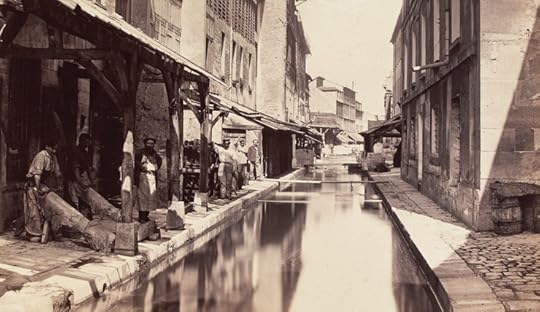The Readers Review: Literature from 1714 to 1910 discussion

This topic is about
Thérèse Raquin
Émile Zola Collection
>
Therese Raquin - Background Information and Resources
date newest »
newest »
 newest »
newest »
message 1:
by
Frances, Moderator
(new)
-
rated it 3 stars
May 01, 2017 02:14AM
 Mod
Mod
reply
|
flag
 Hello fellow Literature Lovers
Hello fellow Literature LoversEmile Zola is one of the most well known and respected French writers of his time. He was one of the the pioneers of the Human Naturalist style of writing which viewed literature as a vehicle for examining the psychology of the human psyche. In pursuance of this you should find that Zola doesn't populate his works with 'larger than life' caricatures such as appear in the works of Dickens - he is far more interested in delving into the inner workings of the human mind, especially when that mind is under pressure from external forces such as poverty, alcohol, abuse and other desperate circumstances.
This interest obviously means that Zola's works are not exactly filled with rainbows and light and they are likely going to be lacking the requisite 'happy endings' and 'deliverance of justice' that we are accustomed to seeing in the books of his English peers.
Thérèse Raquin is an early work, a precursor of the detailed and expansive Les Rougon-Macquart series. It's also extremely short (well, comparatively...) so I'm hoping it will be accessible to everyone.
Welcome aboard all, here's hoping we have an 'enjoyable'? month in the mind of the great Zola!
 Thérèse Raquin was published in 1867 and, coincidentally The Last Chronicle of Barset was also published in 1867. This is one of the reasons I was so interested in selecting this work.
Thérèse Raquin was published in 1867 and, coincidentally The Last Chronicle of Barset was also published in 1867. This is one of the reasons I was so interested in selecting this work.For those of us who have read the rest of the Barsetshire series we can compare the two works. What differences can we see, what similarities? Has the Barsetshire series changed at all as they have progressed? Are they perhaps getting a little darker in outlook as well, with the endings not quite so neat and tidy and the 'happy ending' not always the reward for virtuous behaviour?
Or, is it still a case of the English

and the Parisian

 I enjoyed my first Zola, Germinal which I read a few years back and had thought my next Zola would be either be Thérèse Raquin or L'Assommoir (The Dram Shop). If I have time after finishing Brothers Karamazov with another Goodreads group, I might join in the group read of Thérèse Raquin. It is fairly short. I will also be reading The Last Chronicle of Barset and am interested in understanding Nicola's comparison of the works.
I enjoyed my first Zola, Germinal which I read a few years back and had thought my next Zola would be either be Thérèse Raquin or L'Assommoir (The Dram Shop). If I have time after finishing Brothers Karamazov with another Goodreads group, I might join in the group read of Thérèse Raquin. It is fairly short. I will also be reading The Last Chronicle of Barset and am interested in understanding Nicola's comparison of the works.My question is: Does anyone know if there is a good translation or, more importantly, a translation to avoid? Thanks.
Books mentioned in this topic
Germinal (other topics)Thérèse Raquin (other topics)
L'Assommoir (other topics)
The Last Chronicle of Barset (other topics)
Thérèse Raquin (other topics)
More...


